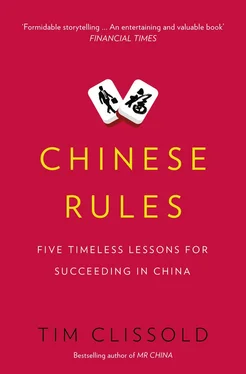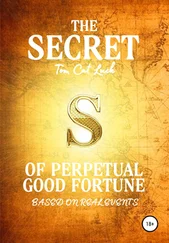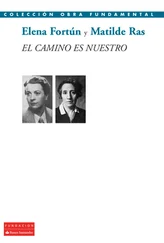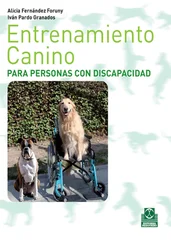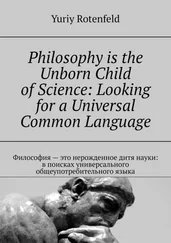I first arrived in Asia in the eighties after I was posted to Hong Kong from London. I’d never been there before, and from the moment I stepped from the plane and through the wall of dense wet heat, I knew I was in a different world. Giant Chinese characters shone in neon lights from the tops of ten-storey buildings. Wherever I looked, there were people hammering in tiny factories, unloading from boats, bargaining in alleyways. Office workers sat crammed into dumpling restaurants between stacks of bamboo steamers. The streets reeked of dried seafood and Chinese medicine and the air was filled with the honking of taxis and clattering of trams. I had no idea that such a concentration of human life could exist in such a state of perpetual motion. The intensity of life in Hong Kong was something completely new to me. Almost immediately, I felt drawn to China.
The following year, I quit Hong Kong and found a place at a university in Beijing to learn Mandarin. It was the year after the tanks had rumbled onto Tiananmen Square and there were almost no other foreigners around. At first the students there sought me out to practise their English, ignoring the bizarre rules about ‘spiritual pollution’ that were meant to keep us apart. But their English was so good that I felt awkward speaking Mandarin with them, and so I started spending more time away from the university, in places where people knew nothing of foreigners. After a while, I could manage simple conversations and slowly grew to recognize the Chinese characters on the shop signs and the notices around me. I found my way more easily through the tangled network of old hutong alleyways that spread around the old imperial buildings at the centre of the city. I often went back to Coal Hill to find the calligraphy man practising his characters with his water brush on the dusty paving. He would write out characters on the stones at his feet while I tried to catch the meaning of the flowing brushstrokes before they began to fade and disappear.
My student days were short-lived and I soon joined an investment firm run by a Wall Street veteran who was building the first large foreign direct investment business in China. Over the period of a few years, he’d raised $400 million and pumped it into twenty factories across China, ending up with nearly twenty-five thousand employees.
The speed of China’s development in those years was difficult to take in; around the Yangtse and Pearl River deltas, shiny new cities rose up out of marshlands in just a few months. Little fishing villages became gigantic container ports, hydroelectric dams choked mighty rivers, and four-lane superhighways were blasted through rock faces. For more than a decade, China existed in a state of supreme upheaval. The government fought to maintain order as it embarked on a programme of massive reform, removing the props of the command economy while billions in foreign investment poured into the coastal provinces. As China awoke from a century of slumber, deep within the interior 150 million workers rose up out of the country villages like a tidal wave and swirled towards the coast.
Many of the factories we had invested in were in remote regions of China, where central authority was weaker. ‘The mountains are high and the emperor is far away,’ goes the old provincial saying about the distant authorities in Beijing. The country is too big to be controlled from a single centre, and unless events catch the attention of Beijing, local interests can often take over. We became embroiled in unequal disputes in far-flung places. Land was transferred out of our joint ventures to prop up loans for other local businesses. Bank transfers and capital investments were made without approval, cash was stuffed into safes in back offices with no records, and contracts were routinely ignored. For a long time, it looked as though we might lose the investment.
It took years to sort out the mess, and during that time, I travelled to almost every province in China. We had strikes and lockouts, sieges and court cases, and had been pursued across the country by officials with writs and freezing orders. But gradually, over a period of several years, the relationships with our Chinese partners smoothed out and the businesses started making money. We got better control of the assets and sales started to grow on the back of the China boom. Most of the investment was saved, together with the jobs of the twenty-five thousand workers, but after nearly seven years in the combat zone of Chinese investment, I was exhausted. I needed some time out to think.
Several years earlier, I’d married my old college classmate – ou duan si lian , as the Chinese would say of a reconnected love-affair: ‘lotus roots may snap but their threads stay attached.’ When Lorraine came to live in Beijing, life’s possibilities multiplied overnight. She had arrived with two small boys – my stepsons Max, aged five, and Christian, who was three – followed a year or so later by our children, Sam and Honor. Weekends were taken up by trips out to remoter parts of the Great Wall, scrambling up the Ming Tombs with a couple of dogs or splashing about on Kunming Lake at the Summer Palace. The foreign community was small in those days and there was still a sense of adventure about a posting to Beijing.
Around the time I was thinking about moving on from the investment business, Lorraine came home one day with news that she had found an old courtyard home for rent about a mile or so east of Tiananmen Square. Hidden in a backstreet, it had been part of the former residence of a Qing Dynasty official; I didn’t need much persuading to move back to the old alleyways.
The courtyard had a large south-facing hall behind a row of red lacquered columns. It stood on a stone terrace looking out onto a garden where an old wisteria climbed up into the carved woodwork under the eaves. The alleyway outside was named after the old imperial grain warehouses. Farther down, clouds of steam rose from a line of shabby street restaurants. At lunchtime, they were packed with labourers from the provinces. Oil drums stuffed with red-hot coals lined the street; cooks in white hats threw handfuls of Sichuan peppercorns into their woks as they shouted out for customers. At the end of the street, there was an old Buddhist temple with big bronze studs on the doorways and glazed black tiles on the rooftops. Inside, a drum tower stood next to a huge cherry tree that burst into blossom in springtime. During festivals, there were concerts in the temple and the air was filled with the smell of incense and the strange chanting of monks. For me, it felt completely natural to be back in the hutongs and connected to the old way of life. On our first night, as I sat in the courtyard with the children, a storm rolled across the city and chunks of ice fell down among torrents of warm water. But after the downpour, the skies quickly cleared and the familiar smell of stir-fry drifted over the wall from next door. The stars came out and, high above our heads, a kite tugged a long trail of candlelit lanterns across the sky, tiny red dots dancing about against a backdrop of darkening blue.
After we moved to the hutong , I took a few months off from work to try to make sense of what happened to the investment business. The prospect of losing so much money and the lessons learned in the fight to recover it had forced me to dismantle entirely my ideas about dealing with China. I had been made to rethink some of my most basic assumptions. One thing was for sure: if you stuck by Western rules, you were finished.
I’d learned my hardest lesson after we’d been hit by a fraud in the southern city of Zhuhai, which sits next to the old Portuguese colony of Macau, far away on China’s southern coast but not so far from Hong Kong. We’d invested about $8 million in a brake-pad factory down there but a few months after we wired in the money, the factory director went on a trip to the United States to attend a trade fair in Las Vegas – and he didn’t come back. We discovered subsequently that he had gone to Hong Kong with four letters of credit – like unbounceable cheques drawn against our account – with a face value of $5 million. There he exchanged them for cash and – carrying what the police described as ‘a large suitcase’, presumably containing the banknotes – he boarded a plane for America. That was the last that we heard of him. In the seat beside him on the way out was the deputy bank manager of the branch that had opened the letters of credit. It was obviously a scam.
Читать дальше
